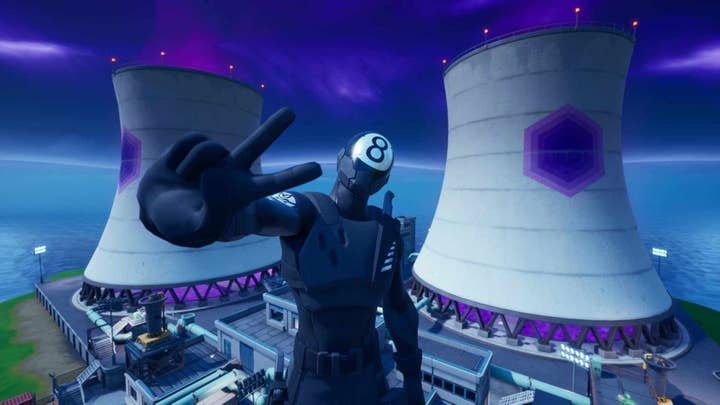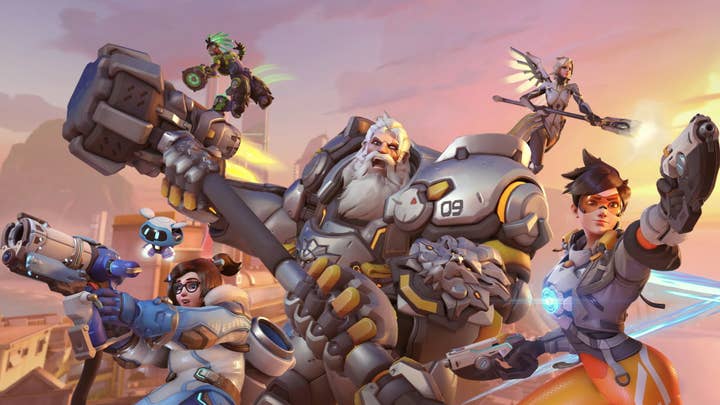Has Blizzard solved the sequel dilemma? | Opinion
Launching a sequel to a service-based game can easily lose player goodwill -- but Overwatch 2 may have found a clever way to thread the needle
"A good day to bury bad news" is an infamous phrase, but its inverse is also true. A good day on which to bury bad news is, conversely, an absolutely terrible day on which to announce good news, because nobody's going to pay much attention to that either.
That notion applies fairly neatly to the most recent iteration of Blizzard's annual jamboree, BlizzCon, which was held in Anaheim last week. The company pulled out the stops for the event, announcing not only a major new World of Warcraft expansion, a new Diablo game that looks pretty much like what series fans have been clamouring for, and a remarkable-looking follow up to Overwatch -- of which more in a moment -- but the company's awful handling of the Hong Kong situation was the story of the week once more, overshadowing all the major announcements. Blizzard continues to manage the situation poorly, but it's not really left with many better options. The company has painted itself into a corner, and it's just going to have to sit there and huff the unpleasant fumes until the paint dries.
"Launching a sequel to a service-based game actually creates a natural break-point for your players"
While Blizzard as a corporation deserves this opprobrium, one can't help but feel for the individual creatives caught up in the situation; some of their best work was on display last week and received far less attention than it deserved. The new Diablo game and WoW expansion both look good, for sure, but they're both a ways off and will have their moments in the sun down the line. The really interesting announcement, from a business perspective at least, was Overwatch 2. That game is also a pretty long way off release, but it's quite likely to start making waves in the industry long before it arrives -- not so much due to its content as due to the smart approach it takes to solving a very thorny problem many game companies presently face.
The problem is this; as games have leaned more and more into the service model -- with most multiplayer titles and even some essentially single-player games being designed around the notion of regular, ongoing updates that hold players' attention and create longer-term revenue streams for their creators -- the question of how to approach launching a sequel has become increasingly fraught. The old-fashioned model of saying "well, we're done with that game, here's the new one" still works for some titles -- Call of Duty seems to get away with it pretty well, for example -- but for many of the most popular games, launching a sequel can actually end up undoing all of the hard work that's been put into building up an active and engaged player base.
If you've got a big, successful game with a strong service element, launching a sequel actually creates a natural break-point for your players. As you ramp down focus on the original title (or perhaps shut it down entirely) you lose their buy-in, the sense of sunk costs that kept them loyal when you had rough patches. You effectively give them permission to go and look elsewhere, see what other games might be interesting, and they can come back and give your sequel (which is New and thus instantly Suspect) a shot at some later date. Some of them will return. Many won't.
"Blizzard's solution with Overwatch 2 is elegant and clever, combining the best aspects of many approaches"
Different developers have tried to address this in different ways. Back when Bungie was working with Activision Blizzard on Destiny, it dramatically misjudged that transition. The shift from Destiny to Destiny 2 was a perfect example of everything that can go wrong, with the sequel effectively shedding much of the goodwill the original game had garnered. A couple of years of content updates were required to get Destiny back on an even keel, and while the most recent expansions have been fantastic, the recovery came too late to rescue Bungie's relationship with Activision.
Other games just dodge the sequel question entirely by simply focusing on an ongoing service offering. As far back as five years ago, Riot Games was adamant that there would never be a League of Legends 2, and Minecraft 2 seems pretty unlikely to ever happen either. Still others have taken to re-imagining the whole notion of what a sequel is; Epic Games, for example, freed from the commercial restraints of a paid-for sequel by the free-to-play nature of Fortnite, made a huge public event of briefly shutting down its enormously successful game and then relaunching it as "Chapter 2" with a significant content overhaul in tow.

Blizzard's solution with Overwatch 2 is elegant and clever, combining the best aspects of many of those approaches -- and avoiding a lot of their pitfalls. It intends to maintain a level playing field between the existing Overwatch and its sequel, with the core PvP game being playable between the two titles, and all the PvP updates to Overwatch 2 being rolled back into the original game free of charge. The sequel, then, will focus on expanding the Overwatch franchise to include elements it has only dabbled with so far -- PvE modes and a story-driven game.
"While you could call Overwatch 2 an expansion, it's an 'expansion' in the broadest sense of that word"
This approach is hugely generous to players of the existing game, which of course makes sense given that the last thing Blizzard wants to do is drive away players who continue to pay for microtransactions. But it also manages to step far enough away from the original title to justify its positioning as a full-priced sequel rather than a mere expansion.
Indeed, while you could call Overwatch 2 an expansion -- and some people are doing so, derisively or otherwise -- it's an "expansion" in the broadest sense of that word, and not the narrow sense ("some new levels and characters") usually employed when talking about game expansions. It expands the reach and ambition of Overwatch in a whole new direction. By building this onto the existing Overwatch experience, it gives a glimpse of a model for this kind of game in which a successful title can become the basis for a much broader universe of experiences and gameplay forms, all constructed around the central pillar of a set of characters, a world, or some other unifying factor.
This is the enormous strength of the Overwatch 2 model compared to, for example, Fortnite's recent overhaul. It ought to keep players of the existing game very happy indeed, but it also gives Blizzard an opportunity to build a whole new side of the game that can potentially attract new players and people to whom the original title didn't really appeal. Most service offering updates ultimately end up being designed to retain existing players rather than attract new ones, while most sequels that try to attract new players seem to end up pissing off the existing fanbase and losing goodwill for the franchise. If Blizzard can really pull this off, it will have threaded the needle nicely -- simultaneously updating the game that its existing audience loves, and also creating a sequel that can appeal to a new and broader audience, infusing fresh blood into the franchise.
This isn't necessarily an approach that's going to work for every developer, but as more and more games transition to a service model, this is the kind of lateral thinking that's going to be required for companies to handle the new challenges presented by working on products that have no natural expiry date. If Blizzard can make it work for Overwatch, at the very least it'll have their former stablemates at Bungie kicking themselves for not thinking of it first -- and other companies which operate major online titles will no doubt be watching closely.
In a sense, what Blizzard is doing here is asking a question that seems obvious in hindsight. Overwatch is already a hugely successful PvP game, so what else can it also potentially be, given the resources for a sequel? If the answer to that question turns out to be as insightful as it appears, Overwatch 2 will be a huge game not just for the company or the fans, but also in terms of the impact it will have on how sequels are handled for many years to come.









